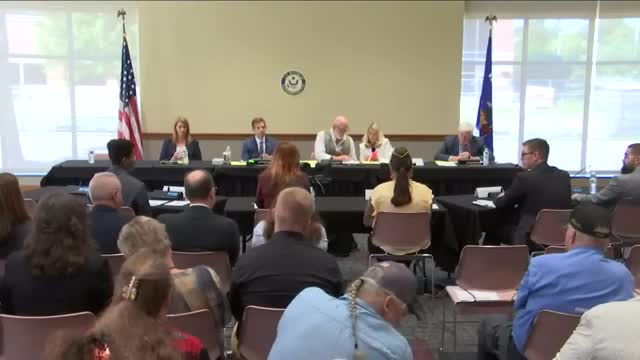Navy veterans demand recognition for technical skills and degrees
August 23, 2024 | Veterans Affairs: House Committee, Standing Committees - House & Senate, Congressional Hearings Compilation
This article was created by AI summarizing key points discussed. AI makes mistakes, so for full details and context, please refer to the video of the full meeting. Please report any errors so we can fix them. Report an error »

During a recent government meeting, a poignant discussion emerged regarding the challenges faced by veterans in obtaining formal qualifications for their technical skills acquired during military service. A veteran, sharing his experience, highlighted the limitations of the Navy's educational offerings, which often do not translate into recognized degrees or certifications.
The veteran, who served nearly nine years as a home maintenance technician, welder, and plumber, expressed frustration over the lack of formal recognition for his extensive hands-on experience. He noted that while he has accumulated significant skills, he lacks the necessary documentation to qualify for higher-paying jobs in the civilian workforce. The current system requires veterans to manually log their hours through a Military Apprenticeship Program (MAPS) to gain credentials, a process he described as cumbersome and inefficient.
He advocated for reforms that would allow military training programs to provide actual degrees or technical diplomas, which would better reflect the skills veterans possess and facilitate their transition into well-paying jobs. The veteran's testimony underscored a broader issue of how military experience is valued in the civilian job market and called for a reevaluation of educational pathways for service members.
This discussion raises important questions about the integration of military training into civilian qualifications and the need for policies that recognize and validate the skills veterans bring to the workforce.
The veteran, who served nearly nine years as a home maintenance technician, welder, and plumber, expressed frustration over the lack of formal recognition for his extensive hands-on experience. He noted that while he has accumulated significant skills, he lacks the necessary documentation to qualify for higher-paying jobs in the civilian workforce. The current system requires veterans to manually log their hours through a Military Apprenticeship Program (MAPS) to gain credentials, a process he described as cumbersome and inefficient.
He advocated for reforms that would allow military training programs to provide actual degrees or technical diplomas, which would better reflect the skills veterans possess and facilitate their transition into well-paying jobs. The veteran's testimony underscored a broader issue of how military experience is valued in the civilian job market and called for a reevaluation of educational pathways for service members.
This discussion raises important questions about the integration of military training into civilian qualifications and the need for policies that recognize and validate the skills veterans bring to the workforce.
View full meeting
This article is based on a recent meeting—watch the full video and explore the complete transcript for deeper insights into the discussion.
View full meeting